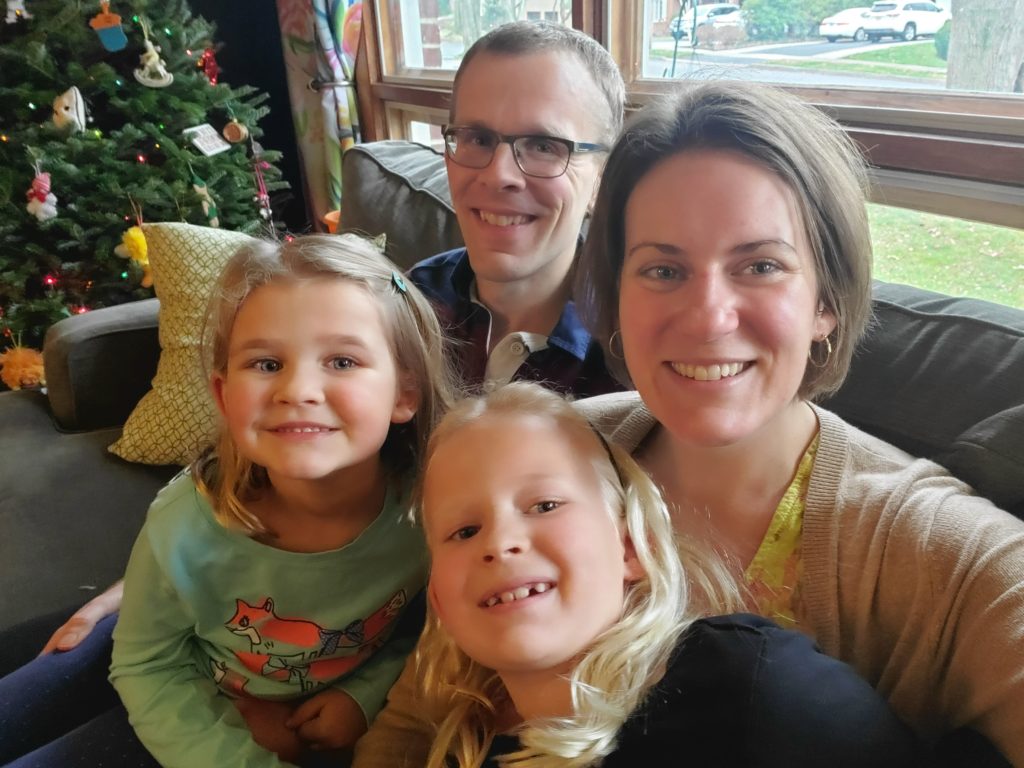This story appears in the May 2021 issue of the Town&Gown
Celebrating its 25th anniversary, the State College Community Land Trust has made its mission to sustain the vibrancy and diversity of the borough community by promoting affordable homeownership opportunities.
With 51 houses, 73 homebuyers, and providing financial education for more than 300 individuals, the land trust is focused on creating more inclusive housing opportunities.
“We hear a lot about affordable housing and the affordable housing crisis now, but even way back in 1996, pressure from Penn State student rentals and the growing university was driving housing costs up,” says Anna Kochersperger, the land trust’s outreach and development coordinator. “A lot of working families were leaving the borough at the time, so there was a keen interest to keep people in the borough, to keep a diversity of residents. Not just students, not just working families, but keep a good mix. So, the State College Community Land Trust was created.”
The land trust works by buying the house and land together and separating the deed for the house and the land. The land trust holds the deed for the land, but sells the house to someone.
“The land that the land trust owns is kept for the community’s benefit,” Executive Director Colleen Ritter says. “The other benefit is that having affordable houses in the community means that the benefit for them is that it’s close to where jobs are, schools, and that kind of stuff. It’s affordable for people, so that they aren’t paying more than the recommended 30 percent on their housing costs.”
“What’s cool about the land trust model is that the houses stay affordable forever,” Kochersperger says. “I think any way we get people into homes or apartments is great, but sometimes the affordability can be a lot over time if you’re just doing down-payment assistance. Sometimes that doesn’t keep houses affordable forever. But what we do is forever. We create forever homes.”
One of the longest-tenured homeowners, Nina Fellin, has benefited from the land trust and opportunities through the organization. After her previous landlord was selling her house and declared her rent would triple, Fellin heard about the land trust and purchased her home in 1999. Since then, she has served on the board of directors as a homeowner and worked with other committees.
“For me, it’s made a huge difference in my life to have this, and especially last year and during the pandemic when I was watching people struggle for housing, I was feeling grateful to know that I and other families have this safety of a home to live in,” Fellin says.
Land trust homeowner and recently-elected board member Lorie Waters and her husband, Joel, describe the immense difference the land trust has made in their lives.

“We had come across the land trust and started looking into that, and as younger, first-time homebuyers, it just seemed like it was the perfect thing for us,” Lorie says. “It would allow Joel to be able to walk to campus, and I was home with our newborn at that point. It just seemed like the perfect opportunity to be close to downtown.”
“It’s been a godsend, honestly,” Joel says. “Just having the land trust option available to us, because we grew up in State College and wanted to live in State College. … We really wanted to be in town as much as possible, and without the land trust, that would not have been possible with the real estate market.”
Opening up the land trust to be more inclusive has become one of the main goals for its future. To address structural racism in housing, the board has expanded its efforts to reach Black, Latino, Asian, Pacific, Native American, and multi-racial residents. In addition, the land trust is opening up the income requirements for qualifying, as it has generally worked with those earning 60-80 percent of the area median.
“We’re starting to see that there’s just no housing for anyone,” Kochersperger says. “So we’re starting to expand into middle-income people who are earning the average, slightly above, and we’re also trying to serve now very low-income people who are earning below that 60-80 percent. So in the last five years or so, that’s … where we’ve been growing.”
The land trust has also been exploring eco-friendly housing options through its GreenBuild project. Not only are these net-zero energy-ready homes beneficial for the environment, but they are also saving families massive amounts of money on their energy bills, by spending an average of $11 per month, compared to $200-plus.
Through all of these efforts, SCCLT has built a community of people that trust and believe in its mission. Many community members have come forward and sold their houses to the land trust, which is how the organization has accumulated its last handful of houses.
“The 50th house we bought just this winter,” Kochersperger says. “The fellow who sold it to us grew up there, and he’s an artist and designer in our community. He’s designing a commemorative plaque that we’re going to install on the house to honor that it’s our 50th house, and it has a little bit of imagery from his family, who has been in the area since the 1800s or so.”
The decisions that are made as an organization are made by the community, on behalf of the community.
“We have a board of directors, staff, many volunteers, supporters, and donors,” Ritter says. “The State College Borough is a big partner with us, and we have other partner agencies like The HOME Foundation, Housing Transitions, and Centre County United Way. So, it really is a community effort.”
For more information, visit scclandtrust.org.



